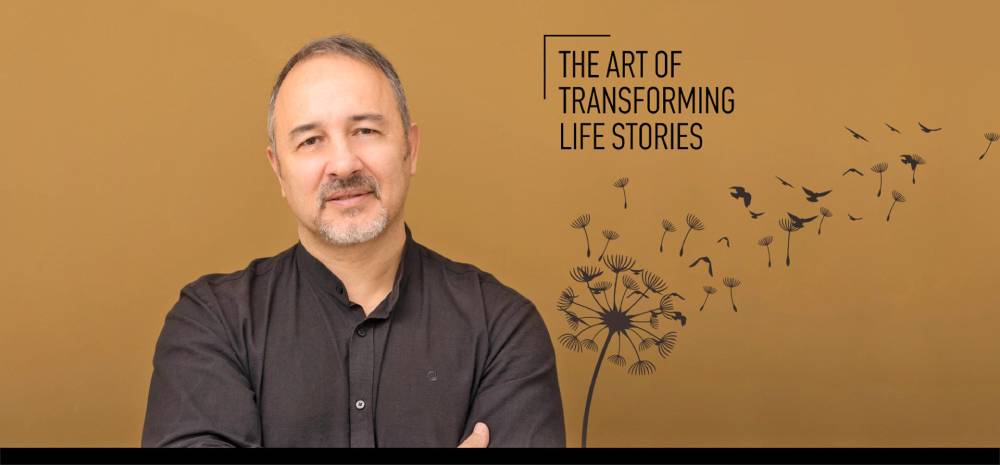The gift of Psychotherapy

«The art of transforming life stories»
In a world characterized by a sense of freedom, fluidity, increased complexity, and dizzying speed, the modern man tries to give meaning to his existence by reinventing himself in a continuum.
In a rapidly changing environment, the psychotherapeutic process emerges as one of the most fundamental fields of study of human relationships and connections, as well as a central social mechanism that provides a fertile context for us to redefine our relationship with ourselves and the broader realm. There is a widespread belief that people seek psychotherapy when they are going through difficult times, when their relationships are highly dysfunctional, or when they suspect the presence of various symptoms or disorders.
However, the psychotherapy process can be viewed as a gift to ourselves and an opportunity to take care of our personal emotional needs while enjoying life.
Many of us have not been taught how the “I” coexists with the “we” and how the “we” shape the “I,” but also how to recognize and regulate our emotions. Instead, we isolate ourselves more and more, employing survival strategies that, while appearing to be an ingenious adaptation of our organism in order to cope with difficult and threatening conditions for our psyche and succeed in our lives, frequently act as brakes on our well-being and do not serve the purpose for which they were originally chosen.
People are naturally resistant to change. As a result, as time passes and circumstances change, we frequently ignore the invitation to redefine ourselves.
On the contrary, we remain attached to older methods of survival and emotion regulation, trapped within dysfunctional and burdensome roles for our relationships and mental and physical health.
“Man has the unique ability to create and live with narratives and stories that he tells himself about himself, his relationships, and the world around him,” writes famous writer, historian, and philosopher Yuval Noah Harari. This is a skill that we learned from our early interactions with our significant others.
These narratives connect us to others, give meaning to our lives, and help us organize a more coherent self.
While our actual needs change over time as a result of our experiences, these narratives, rather than being transformed, become rigid, and dysfunctional, and do not actually serve our needs, and thus our mental well-being. Psychotherapy, in conjunction with other forms of self-awareness such as meditation, lays the groundwork for organizing more functional narratives about ourselves, relationships, and, ultimately, life itself. We are genetically programmed as humans to connect with others (social brain) from conception and throughout our lives. This is a process as important to our species’ survival as breathing, water, and food. The quality of this connection, our own brain with other brains (brain connectivity), serves as the primary goal not only of survival but also of our well-being and successful evolution.
This connection is possible when the person has and continues to have loving and healthy relationships. When we do not experience relationships as such, or when this type of relationship is violently interrupted (e.g., the death of a loved one), potential “dysfunctions” emerge and tend to establish themselves, resulting in specific patterns of behavior and communication.
Recent discoveries in the brain sciences (neuro psychobiology, interpersonal neurobiology, and so on) show that the journey of psychotherapy is a deeply restorative experience that teaches us how to exist in essentially loving relationships, primarily with ourselves but also with others, to set our limits and be able to enjoy, rejoice, and give meaning to our lives.
Change does not happen magically on this journey, but rather depends on the person’s intention to confront the things that are difficult for him and expose himself honestly. In this way, with his psychotherapist as a companion, he embarks on an exploratory journey filled with shocking surprises. Psychotherapy is for those who want to take control of their lives and live their dreams.
The principles of psychotherapy are safety, trust, acceptance, and empathy. Within such an environment, we can connect more effectively with others, share our thoughts and concerns, rediscover abilities we had forgotten, and love ourselves more with full acceptance and compassion.\
–
Epameinondas Lorandos
MA, ECP, ICADC,
Psychotherapist – Couple & Family Therapist
Group Psychotherapist – Addiction Counselor
Supervisor & Trainer for Mental Health Professionals
www.elorandos.gr • [email protected]



